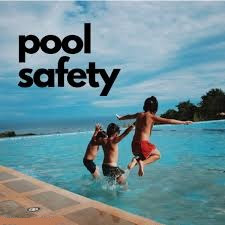Ensuring a Splashing Safe Time: The Importance of Pool Barrier Safety and Pool Safety Certificates
As the sun's rays grow warmer and summer vibes beckon, there's no better way to beat the heat than taking a refreshing dip in a swimming pool or spa. These aquatic havens offer relaxation, recreation, and a cool respite from the scorching temperatures. However, beneath the sparkling surface, a critical aspect often goes unnoticed: pool safety. With water-related accidents being a concerning reality, the significance of pool barrier safety and pool safety certificates cannot be emphasized enough.
Pool barrier safety refers to the preventive measures taken to secure swimming pools and spas, minimizing the risk of accidents, especially involving young children. Drowning incidents are a tragic reality that can occur swiftly and silently. The installation of proper pool barriers acts as the first line of defense against such accidents. These barriers can include fences, gates, pool covers, and alarms – all designed to restrict unsupervised access and provide precious extra moments to respond in case of an emergency.
A well-designed pool fence should be at least 4 feet high, with self-closing and self-latching gates. The objective is to ensure that young children cannot enter the pool area without adult supervision. Regular maintenance and checks are crucial to guarantee that these barriers remain effective. Over time, wear and tear could compromise their integrity, rendering them less reliable. It's also essential to educate pool owners about the significance of keeping these barriers in optimal condition.
Swimming Pool and Spa Safety: A Shared Responsibility
While pool barriers are indispensable, active supervision is equally vital when it comes to swimming pool and spa safety. Regardless of age or swimming proficiency, accidents can happen to anyone. Even the strongest swimmers can find themselves in distress due to unforeseen circumstances. That's why it's recommended to establish a buddy system – no one swims alone. Designate a responsible adult as the "water watcher," someone who remains vigilant without distractions while others enjoy the water.
Moreover, promoting water safety education cannot be overstated. Teaching children basic swimming and water survival skills, as well as imparting knowledge about the potential dangers around pools and spas, can go a long way in preventing accidents. These skills empower individuals to respond effectively in emergencies, potentially preventing a minor incident from escalating into a tragedy.
The Vital Role of Pool Safety Certificates
Enter the pool safety certificate – a document that underscores a commitment to pool safety. In many regions, obtaining a pool safety certificate is mandatory before a property with a pool or spa can be sold or leased. This certificate signifies that the pool barriers meet the required safety standards and are properly maintained. It's a testament to the property owner's dedication to preventing accidents and fostering a safe environment.
To acquire a pool safety certificate, a thorough inspection of the pool barriers is conducted by certified inspectors. This inspection evaluates factors such as the height and condition of fences, gate functionality, and overall compliance with local safety regulations. Pool owners should consider this process not as a legal obligation alone, but as a moral responsibility to contribute to the community's safety.
In conclusion, the allure of swimming pools and spas should never overshadow the paramount importance of safety. Pool barrier safety stands as a crucial shield against accidents, ensuring that unsupervised access is prevented. Active supervision, education, and awareness further bolster the layers of protection. The acquisition of a pool safety certificate not only adheres to legal requirements but also symbolizes a commitment to safeguarding lives. So, as the summer sun beckons, let's dive into the waters of leisure with safety as our trusted companion.




Comments
Post a Comment